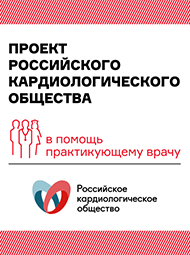Stroke Rounds: Gender Difference Seen in Dabigatran Dosing
In Canada, women tend to receive intermediate dosage not available in the U.S.
Women with atrial fibrillation have a higher stroke risk than men, but they are more likely to receive lower doses of the oral coagulant dabigatran (Pradaxa) than their male counterparts, according to findings from a population-based study from Quebec, Canada.
After controlling for age and baseline comorbidities, Canadian women in the study had a 35% higher chance than men of being prescribed an intermediate dose of dabigatran (110 mg twice daily) for the reduction of Afib-related stroke risk.
But that dose failed to offer greater protection from stroke compared with warfarin (Coumadin) treatment, whereas women treated with 150-mg dabigatran twice daily showed a trend toward greater protection from stroke (hazard ratio 0.79, 95% CI 0.56-1.04), researcher Louise Pilote, MD, MPH, PhD, of McGill University Health Center, Montreal, and colleagues wrote in the journal Circulation: Cardiovascular Quality and Outcomes, published online Oct. 27.
Nevertheless, in a telephone interview with MedPage Today, Pilote argued that the intermediate dose was still effective and offers clinicians a potentially safer option for patients at high-risk for bleeding.
"It is unfortunate that this (110-mg strength) is not available in the United States," she said. "Women with atrial fibrillation tend to be older than men and they have a higher bleeding risk. The more options the better."
In the U.S., dabigatran is available only in 75- and 150-mg strengths. The FDA decided not to approve the intermediate 110-mg dose of the drug, despite a signal from the pivotal RE-LY randomized trial that this dose was as effective as warfarin with less bleeding risk in patients with atrial fibrillation.
The study is among the first to examine sex difference in dabigatran use, safety, and efficacy outside the clinical trial setting. Pilote said she was reassured by the relatively low rate of bleeding and comparable or better stroke protection, compared to warfarin, at both 110-mg and 150-mg doses.
ADVERTISEMENT
"I expected more bleeding events because we haven't had (dabigatran) reversal drugs and because patients aren't monitored as closely as they are when taking warfarin," Pilote told MedPage Today, adding that she also expected patients to be less compliant in taking the new oral anticoagulant (NOAC), which should have led to an increased stroke risk.
"The good news is that in this real-world look at this drug, the experience matches pretty much with the clinical trials," she said.
The population-based, cohort study included 31,786 women with Afib (50.4%) and 31,324 men (49.6%) identified through administrative databases in Quebec between 1999 and 2013. The 75-mg dose was not addressed in the study because only 18 patients in the database had taken that dosage.
Women were, on average, 4 years older than men (mean age 76.3 versus 80.3) and they had higher baseline stroke risk than men. Women also filled more prescriptions for the lower dabigatran dose compared with men (adjusted OR 1.35; 95% CI 1.24-1.48).
"The reason for this difference is unclear," the researchers wrote. "It is possible that clinicians perceive women as frailer patients than men, so they tend to be more concerned about safety and, therefore, prescribe women with a lower dose of dabigatran, compromising efficacy."
In multivariable analysis adjusted for propensity scores, dabigatran use was associated with a lower risk of bleeding compared with warfarin in men (P=0.008 for interaction), and a trend was seen toward a lower risk of stroke in women treated with the higher dose. But no difference in myocardial infarction risk was seen with dabigatran, compared to warfarin, for either sex.
Inmaculada Hernandez, PharmD, of the University of Pittsburgh Graduate School of Public Health, told MedPage Today that in addition to the relative older age of women with Afib, the fact that women tend to be more risk averse than men may help explain the prescribing difference reported in the study.
She noted that at baseline 75% of the women in the study cohort were age 75 or older, compared to 59% of men.
In a recently published commentary, Hernandez called on the FDA to approve the 110-mg dose of dabigatran to increase the options of clinicians for treating atrial fibrillation patients.
"I think this dose would be a good therapeutic option for patients who are either age 80 and older or who otherwise have a high risk for bleeding events," she said.
Source: www.medpagetoday.com


.jpg)



